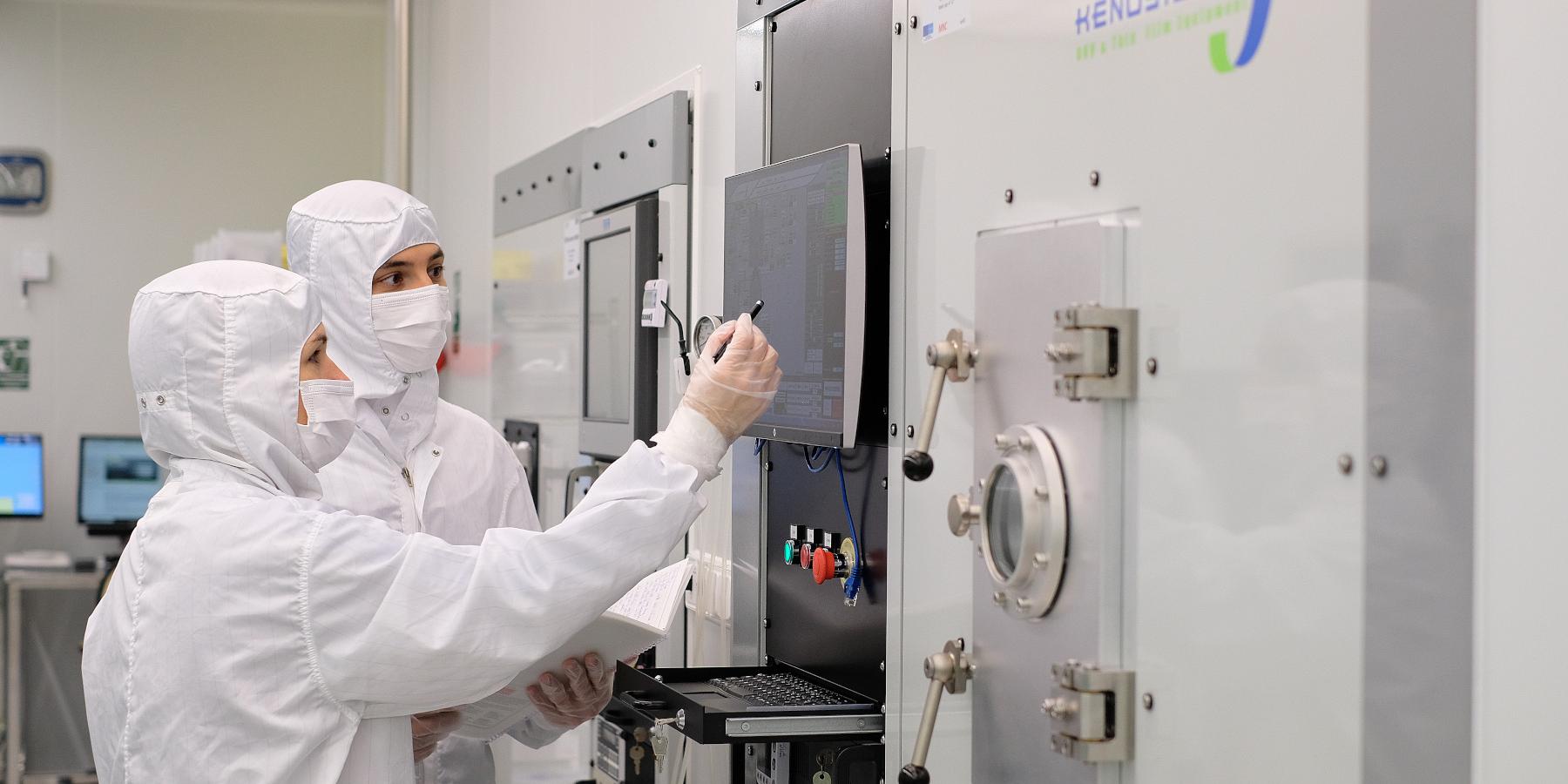New interuniversity master's degree in Semiconductor Engineering and Microelectronic Design with the collaboration of IMB-CNM
With the strategic collaboration of the Institute of Microelectronics of Barcelona (IMB-CNM) of CSIC, the new interuniversity master's degree in Semiconductor Engineering and Microelectronic Design is born, coordinated by the Universitat Politècnica de Catalunya - BarcelonaTech (UPC), with the UB, UAB and URV.

The objective of creating the interuniversity master's degree in Semiconductor Engineering and Microelectronic Design/Semiconductor Engineering and Microelectronic Design, which will be coordinated by the Universitat Politècnica de Catalunya - BarcelonaTech (UPC), with the participation of the University of Barcelona (UB), the Universitat Autónoma de Barcelona (UAB) and the Universitat Rovira i Virili (URV), and carried out in collaboration with the Institute of Microelectronics of Barcelona (IMB-CNM), the Universitat Autònoma de Barcelona (UAB) and the Universitat Rovira i Virgili (URV), in collaboration with the Institute of Microelectronics of Barcelona (IMB-CNM) of the Spanish National Research Council (CSIC), arises from the urgent need to train professionals in this field, following the recent chip crisis.
In addition, the approval of the European chip law by the European Parliament in 2022, known as the European Chips Act, highlights the need to invest in the training of talent and the development of skills in the field of semiconductors. The document puts the number of open vacancies for electronic engineers in Europe at thousands of professionals. The need to invest in new technology lines and pan-European design platforms has also been identified.
Semiconductor and microelectronics technology is a fundamental pillar in today's world, as it is the basis of electronic devices that make communication, computing, medicine and many other aspects of today's society possible. With the growing demand for highly qualified professionals in this field, the interuniversity master's degree in Semiconductor Engineering and Microelectronic Design has been designed to provide students with the skills and knowledge necessary to meet the technological challenges of the future. Training in semiconductor manufacturing and design and microelectronics in the same master's degree is one of the program's distinguishing features.
In the process of creating the master's degree, the five institutions that promote it have been in close contact with Fabcat, a group of microelectronics professionals and companies that, in recent years, has been promoting Catalonia as a location for semiconductor factories and attracting productive investment.
A comprehensive program, with a broad spectrum of knowledge.
This new inter-university master's degree, which will be launched in September 2024, with an offer of 30 places, will have 60 ECTS credits and will be taught in English. Pre-registration will open in the first semester of 2024. Coordinated and managed by the Barcelona School of Telecommunications Engineering (ETSETB) of the UPC, it will offer a comprehensive education, combining the resources and academic excellence of the participating universities - with years of experience in training and research in semiconductor engineering and microelectronic design - and the participation of the IMB-CNM of the CSIC, the reference center in microelectronic technologies.
The program covers a wide range of topics and offers two specialties. The Semiconductor Engineering specialization will train students in the use of microelectronic chip technologies in different areas, such as clean room fabrication, encapsulation, characterization and reliability analysis, as well as the physical understanding of phenomena occurring in current and emerging semiconductor devices. The Microelectronic Design specialty aims to train in the design of integrated, digital and analog microelectronic circuits and systems in advanced technologies.
Advanced laboratories and internships
Students of the new master's program will have access to laboratories equipped with state-of-the-art technology and will be able to participate in innovative research projects. One of these laboratories will be the Micro and Nanofabrication Clean Room of the IMB-CNM-CSIC, a 1,500 square meter Unique Scientific and Technical Infrastructure (ICTS) that will provide students with a unique opportunity to enter the world of microelectronic technologies from a more practical and applied perspective.
In addition, the program will offer internship opportunities in technology companies in order to complete the training and boost the students' employability, while meeting the demands of the microelectronics industry.




